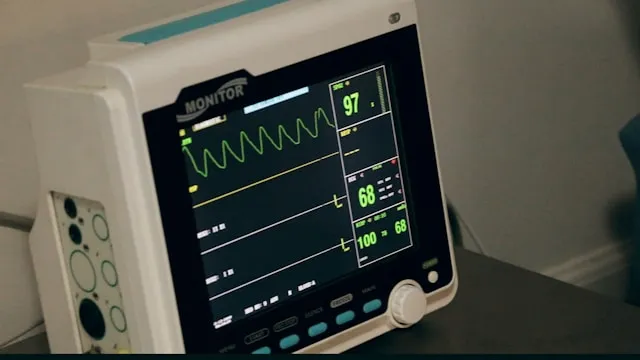Once a block has formed, there is no easy way to unblock an artery. On the other hand, diet changes, exercise, and quitting smoking can enhance cardiovascular health and prevent blockages from deteriorating. Medication or surgery may be required in some circumstances. Block accumulation in a person's arteries can cause them to become blocked. There are no fast cures for removing plaque, but people may make important lifestyle adjustments to prevent further accumulation and enhance their heart health. In severe circumstances, medical techniques or surgery can assist in eliminating artery blockages. Doctors may also give aspirin or cholesterol-lowering medications such as statins. So in this article, we will look into some effective solutions on how to clear blocked arteries without surgery, so continue reading.
How to Clear Blocked Arteries Without Surgery?
Here are several approaches to help improve arterial health and potentially reduce blockages without surgery:
1. Dietary Changes
- Focus on a heart-healthy diet rich in fruits, vegetables, whole grains, and lean proteins
- Reduce saturated and trans fats
- Increase omega-3 fatty acids from fish, nuts, and seeds
- Incorporate foods that can help lower cholesterol like oats, beans, and olive oil
2. Regular Exercise
- Aim for at least 150 minutes of moderate aerobic activity per week
- Include activities like brisk walking, swimming, or cycling
- Strength training can also improve cardiovascular health
- Regular exercise helps improve blood flow and reduce arterial inflammation
3. Natural Supplements
- Omega-3 fish oil supplements
- Garlic supplements can help improve cholesterol levels
- CoQ10 may support heart health
- Plant sterols and stanols can help block cholesterol absorption
4. Lifestyle Modifications
- Quit smoking
- Manage stress through meditation, yoga, or relaxation techniques
- Maintain a healthy weight
- Limit alcohol consumption
- Get adequate sleep
5. Medical Management
- Work closely with a healthcare provider
- Monitor cholesterol levels
- Consider medications like statins if recommended
- Regular check-ups and cardiovascular screenings
Important Cautions:
- These approaches can support heart health but are not guaranteed to clear blocked arteries completely
- Severe arterial blockages may still require medical intervention
- Always consult with a healthcare professional before making significant changes to your diet or exercise routine
- Some individuals may need more aggressive treatments depending on their specific health condition
Strategies To Prevent Blocked Arteries
- Control blood pressure
- Manage Diabetes
- Reduce sugar and processed food intake
- Stay hydrated
- Consider periodic cardiovascular health assessments
While these methods can help improve cardiovascular health, they are not a substitute for professional medical advice. Individuals with known heart conditions should work closely with their healthcare providers to develop a comprehensive treatment plan.
Conclusion
Removing artery blockages is not an easy task. It may entail intrusive treatments that negatively influence a person's quality of life. The best method to avoid blocked arteries at any age is to take action to prevent or limit the creation of plaque. It will be particularly helpful for someone at risk of blockage or atherosclerosis. These are the best solutions on how to clear blocked arteries without surgery, offering non-invasive alternatives for improved cardiovascular health. A doctor can propose food and lifestyle changes based on an individual's needs and presentation skills and explain any required treatment or preventative choices.
Also Read PTCA To Open Coronary Artery Blockages
Frequently Asked Questions
How can I unclog my arteries naturally and fast?
Eat a heart-healthy diet rich in omega-3s, exercise regularly, manage stress, quit smoking, and consider natural supplements like garlic and fish oil under medical supervision.
What is the new drug that melts plaque in arteries?
As of late 2024, lecanemab (Leqembi) has shown promise in helping to reduce amyloid plaque in arteries and potentially slow cognitive decline in Alzheimer's patients.
What is the best drink for clogged arteries?
Green tea, contains powerful antioxidants that can help reduce cholesterol and improve heart health by supporting arterial function.
Can blocked arteries be unblocked?
Yes, blocked arteries can be unblocked through medical procedures like angioplasty, stenting, or bypass surgery, depending on the severity and location of the blockage.

Reviewed by







